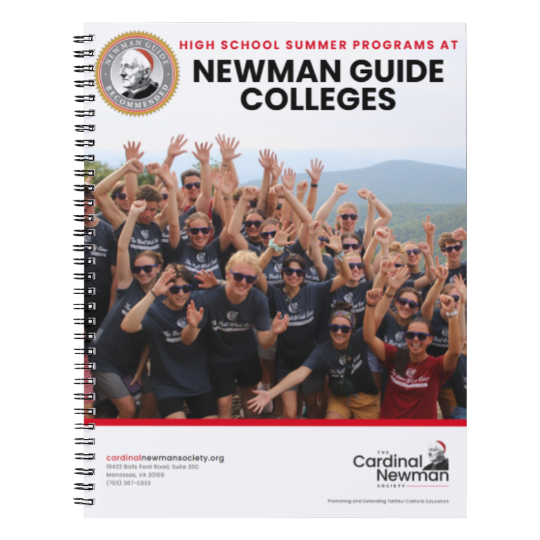 What better way for a high school student to spend a week or two this summer, than to enjoy a fun and spiritual program at a Newman Guide Recommended college!
What better way for a high school student to spend a week or two this summer, than to enjoy a fun and spiritual program at a Newman Guide Recommended college!
A faithful Catholic education can prepare students not only for a career, but also for life. Whether or not you plan to attend a Catholic college, a summer program at one of the faithful colleges recommended in The Newman Guide can be enriching and will give you a taste of the benefits of a Catholic education.
Summer programs are a great opportunity for high school students to strengthen their academic and extracurricular skills, grow in their spiritual lives, get a head-start on college visits, learn from distinguished professors, make lifelong friends and experience what faithful Catholic education is all about. Here are some options:
 Ave Maria University in Ave Maria, Fla., is offering its annual Summer Leadership Conference for rising high school juniors and seniors that is inspired by the Bible verse, “Put out into the deep and let down your nets for a catch” (Luke 5:4). Running from June 22-27, students will “enter into a weeklong program rich in the Catholic faith, with multiple tracks of challenging academics, hands-on learning, mentorship, talks, and, of course, fun!”
Ave Maria University in Ave Maria, Fla., is offering its annual Summer Leadership Conference for rising high school juniors and seniors that is inspired by the Bible verse, “Put out into the deep and let down your nets for a catch” (Luke 5:4). Running from June 22-27, students will “enter into a weeklong program rich in the Catholic faith, with multiple tracks of challenging academics, hands-on learning, mentorship, talks, and, of course, fun!”
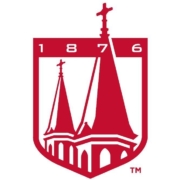 Belmont Abbey College’s Schola program in Belmont, N.C., strives to cultivate a true life of leisure over a one-week session that runs July 6-12. According to the College, students will “build friendships together, through conversations with peers and professors; enjoy time to relax, join in the daily prayer life on campus, and pursue outdoor activities.” By the end of the week, students will have “grown in wisdom, critical thinking, and camaraderie.” Videos on the Schola program webpage show some of the highlights of previous years.
Belmont Abbey College’s Schola program in Belmont, N.C., strives to cultivate a true life of leisure over a one-week session that runs July 6-12. According to the College, students will “build friendships together, through conversations with peers and professors; enjoy time to relax, join in the daily prayer life on campus, and pursue outdoor activities.” By the end of the week, students will have “grown in wisdom, critical thinking, and camaraderie.” Videos on the Schola program webpage show some of the highlights of previous years.
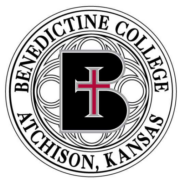 The Benedictine College Youth Conferences (BCYC) Immersion program in Atchison, Kan., offers four sessions for students to choose from more than 20 academic tracks, including computer science, engineering, nursing, pre-med, theology, philosophy, graphic design, voice, art, and many more. Outside of class, students participate in Bible studies, attend Mass and engage in a variety of social activities from dances to sports to scavenger hunts. Participants report that they come away from the week with a deeper relationship with God and a better understanding of their vocation. Benedictine also offers a one-week session for BCYC Leadership, which will help students discover how Catholic leadership principles can transform the way they lead at school, in their parish and in their community. There is also a weekend BCYC Encounter conference for parish and diocesan groups that focus on Benedictine spirituality. Finally, Benedictine College hosts a two-week Summer Intensive in Classical Architecture.
The Benedictine College Youth Conferences (BCYC) Immersion program in Atchison, Kan., offers four sessions for students to choose from more than 20 academic tracks, including computer science, engineering, nursing, pre-med, theology, philosophy, graphic design, voice, art, and many more. Outside of class, students participate in Bible studies, attend Mass and engage in a variety of social activities from dances to sports to scavenger hunts. Participants report that they come away from the week with a deeper relationship with God and a better understanding of their vocation. Benedictine also offers a one-week session for BCYC Leadership, which will help students discover how Catholic leadership principles can transform the way they lead at school, in their parish and in their community. There is also a weekend BCYC Encounter conference for parish and diocesan groups that focus on Benedictine spirituality. Finally, Benedictine College hosts a two-week Summer Intensive in Classical Architecture.
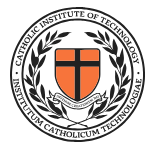 The Catholic Institute of Technology in Castel Gandolfo, Italy, one of the newest colleges to be provisionally recommended in The Newman Guide, is offering a Computer Science Intensive program for rising high school juniors and seniors. The program, which runs from July 5-August 4, will introduce students to computer science from a faithfully Catholic perspective while allowing students to experience all that Italy has to offer. Participants will even be able to attend the canonization of Blessed Pier Giorgio Frassati while studying abroad.
The Catholic Institute of Technology in Castel Gandolfo, Italy, one of the newest colleges to be provisionally recommended in The Newman Guide, is offering a Computer Science Intensive program for rising high school juniors and seniors. The program, which runs from July 5-August 4, will introduce students to computer science from a faithfully Catholic perspective while allowing students to experience all that Italy has to offer. Participants will even be able to attend the canonization of Blessed Pier Giorgio Frassati while studying abroad.
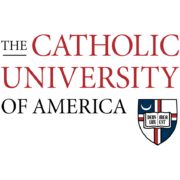
The Catholic University of America in Washington, D.C., offers a wide variety of fun and educational summer programs for high school students. Whether students are interested in engineering, writing, nursing, drama, architecture, or 3D Animation, there’s something for everyone! In Experiences in Architecture, students will explore the academic and professional sides of architecture. Drama lovers will be drawn to the High School Drama Institute, studying voice, movement, and acting with industry pros. Budding engineers can dive into Engineering New Frontiers and the Computational Biosciences Institute, where students will delve into biomedical, mechanical, electrical, civil, and computer science engineering. Non-residential programs at Catholic University of America include the Nursing Intensive, 3D Gaming Animation, and two new camps: Script & Story Workshop and Young Writer’s Retreat. These programs are designed to provide an enriching educational experience in the nation’s capital.
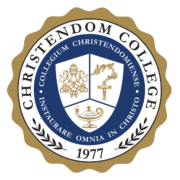 Christendom College in Front Royal, Va., is offering “The Best Week Ever,” a choice of five different one-week sessions throughout June and July. Intended for rising high school seniors, the program instills in students “a deep appreciation for the liberal arts, Catholic culture, true friendship, and the beauty of God’s creation evidenced in the Shenandoah Valley of Virginia.” Participants attend daily classes in literature, philosophy, history and theology; hike in the mountains; canoe on the Shenandoah River; sing Irish songs; learn to swing dance and forge new friendships. As one student said afterward, “When I first heard about it, I honestly thought the ‘Best Week Ever’ was just an advertisement, but I truly did have the best week of my life and I have made memories I will treasure forever. Not only did I learn so much during my short time at Christendom this summer, but I’ve met the most amazing people and made friends I am still keeping up with. In learning so much about Christendom College and meeting such dedicated Catholics, I grew much closer to Christ and left the program with a desire to continue growing my relationship with God.” Summer program participants are eligible for a $8,000 scholarship if they apply and enroll in Christendom College.
Christendom College in Front Royal, Va., is offering “The Best Week Ever,” a choice of five different one-week sessions throughout June and July. Intended for rising high school seniors, the program instills in students “a deep appreciation for the liberal arts, Catholic culture, true friendship, and the beauty of God’s creation evidenced in the Shenandoah Valley of Virginia.” Participants attend daily classes in literature, philosophy, history and theology; hike in the mountains; canoe on the Shenandoah River; sing Irish songs; learn to swing dance and forge new friendships. As one student said afterward, “When I first heard about it, I honestly thought the ‘Best Week Ever’ was just an advertisement, but I truly did have the best week of my life and I have made memories I will treasure forever. Not only did I learn so much during my short time at Christendom this summer, but I’ve met the most amazing people and made friends I am still keeping up with. In learning so much about Christendom College and meeting such dedicated Catholics, I grew much closer to Christ and left the program with a desire to continue growing my relationship with God.” Summer program participants are eligible for a $8,000 scholarship if they apply and enroll in Christendom College.
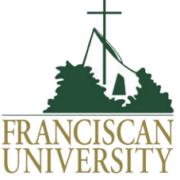 Franciscan University’s summer Steubenville Conferences are popular with Catholic high school students across the country. The three-day Catholic conferences bring teens into a life-changing encounter with Jesus Christ. Conferences take place at multiple locations across the United States and Canada, including four conferences at Franciscan University’s campus in Steubenville, Ohio. The theme for the 2025 conferences is “Consumed” (Deuteronomy 4:24). Interested students must apply to attend a conference through a parish, high school or youth ministry group.
Franciscan University’s summer Steubenville Conferences are popular with Catholic high school students across the country. The three-day Catholic conferences bring teens into a life-changing encounter with Jesus Christ. Conferences take place at multiple locations across the United States and Canada, including four conferences at Franciscan University’s campus in Steubenville, Ohio. The theme for the 2025 conferences is “Consumed” (Deuteronomy 4:24). Interested students must apply to attend a conference through a parish, high school or youth ministry group.
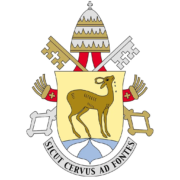 ITI Catholic University in Trumau, Austria, is hosting its first annual summer program. This program is geared for current college students or adults because participants must be 18 years old. The two-week program runs from June 30 to July 11. The program aims to “cultivate the virtue of wisdom regarding life’s most profound questions.” A typical day will include prayer, classes, Mass, and recreation time, with outings to Vienna, Salzburg and more. There is a scholarship discount for students who enroll at ITI following the summer program.
ITI Catholic University in Trumau, Austria, is hosting its first annual summer program. This program is geared for current college students or adults because participants must be 18 years old. The two-week program runs from June 30 to July 11. The program aims to “cultivate the virtue of wisdom regarding life’s most profound questions.” A typical day will include prayer, classes, Mass, and recreation time, with outings to Vienna, Salzburg and more. There is a scholarship discount for students who enroll at ITI following the summer program.
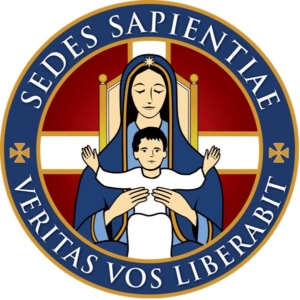 Our Lady Seat of Wisdom College in Barry’s Bay, Ontario, is offering Veritas Summer Programs for the first time for rising high school juniors, seniors, and recent graduates that will run from June 29 to July 5 or July 20-26. The program includes daily access to the sacraments, academic seminars in the morning, and fun activities like swimming, canoeing, and hiking in the afternoons and evenings. Situated in a beautiful setting in Canada, the program will conclude with an overnight camping excursion. The cost of the program will be applied as a tuition credit for any student who enrolls in the College after attending the program.
Our Lady Seat of Wisdom College in Barry’s Bay, Ontario, is offering Veritas Summer Programs for the first time for rising high school juniors, seniors, and recent graduates that will run from June 29 to July 5 or July 20-26. The program includes daily access to the sacraments, academic seminars in the morning, and fun activities like swimming, canoeing, and hiking in the afternoons and evenings. Situated in a beautiful setting in Canada, the program will conclude with an overnight camping excursion. The cost of the program will be applied as a tuition credit for any student who enrolls in the College after attending the program.
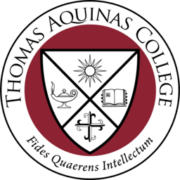 Once again, Thomas Aquinas College is offering its Great Books summer program in two locations: its campus in Santa Paula, Calif., from July 6-19 or July 27-August 3, and its second campus in Northfield, Mass., from July 13-26. These two-week programs engage students in seminars on Plato, Pascal, St. Thomas Aquinas and Kierkegaard, among others. In addition to daily recreational and liturgical activities, the program also includes day trips to nearby cities. A detailed day-to-day picture of what the Great Books program is like can be found on the college’s blog. This program is offered to rising seniors.
Once again, Thomas Aquinas College is offering its Great Books summer program in two locations: its campus in Santa Paula, Calif., from July 6-19 or July 27-August 3, and its second campus in Northfield, Mass., from July 13-26. These two-week programs engage students in seminars on Plato, Pascal, St. Thomas Aquinas and Kierkegaard, among others. In addition to daily recreational and liturgical activities, the program also includes day trips to nearby cities. A detailed day-to-day picture of what the Great Books program is like can be found on the college’s blog. This program is offered to rising seniors.
 Thomas More College in Merrimack, N.H., offers a Great Books program for high school-aged students. These two-week sessions, offered June 22–July 5 or July 13 – July 26, will immerse participants in a “healthy balance of prayer, work and play” as they read authors like St. Thomas More, Plato, and Aristotle. Along with academics, students will go on excursions throughout New England, including hiking mountains, visiting historic locations and traveling to the coast. Rising high school seniors also have the unique opportunity to attend the College’s Rome High School Summer Program, which runs from August 3-16. The program gives students a taste of the College’s Rome Program, in which sophomores spend a semester abroad, and “traverse catacombs and cloisters, piazzas and palazzos, exploring the heart of the Christian West.”
Thomas More College in Merrimack, N.H., offers a Great Books program for high school-aged students. These two-week sessions, offered June 22–July 5 or July 13 – July 26, will immerse participants in a “healthy balance of prayer, work and play” as they read authors like St. Thomas More, Plato, and Aristotle. Along with academics, students will go on excursions throughout New England, including hiking mountains, visiting historic locations and traveling to the coast. Rising high school seniors also have the unique opportunity to attend the College’s Rome High School Summer Program, which runs from August 3-16. The program gives students a taste of the College’s Rome Program, in which sophomores spend a semester abroad, and “traverse catacombs and cloisters, piazzas and palazzos, exploring the heart of the Christian West.”
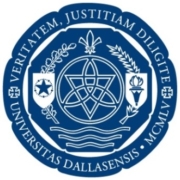 The University of Dallas in Irving, Tex., offers several summer programs for high schoolers interested in classical texts, art and music. Rising juniors and seniors can experience life on campus during the two-week Arete: An Introduction to the Classics from June 8-12. The Arete program is about the “questions of what constitutes excellence and how one lives a noble life” and students will earn three hours of college credit. Students as young as rising seventh graders can attend the Summer Art Academy or the Summer Music Academy to enhance their artistic potential. Both of these programs run for one week.
The University of Dallas in Irving, Tex., offers several summer programs for high schoolers interested in classical texts, art and music. Rising juniors and seniors can experience life on campus during the two-week Arete: An Introduction to the Classics from June 8-12. The Arete program is about the “questions of what constitutes excellence and how one lives a noble life” and students will earn three hours of college credit. Students as young as rising seventh graders can attend the Summer Art Academy or the Summer Music Academy to enhance their artistic potential. Both of these programs run for one week.
 The University of Mary in Bismarck, N.D., offers a summer program for high school students. The Cor Christi Institute program runs for two sessions in July on the University’s campus. This program invites high school students of all grades to encounter Jesus and learn the foundational teachings and practices of the Catholic faith through serious study, good conversation and wholesome friendship.
The University of Mary in Bismarck, N.D., offers a summer program for high school students. The Cor Christi Institute program runs for two sessions in July on the University’s campus. This program invites high school students of all grades to encounter Jesus and learn the foundational teachings and practices of the Catholic faith through serious study, good conversation and wholesome friendship.
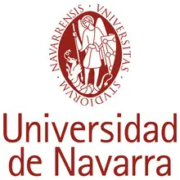 The University of Navarra is inviting high school students interested in traveling abroad to join the university on a pilgrimage walking the Way of St. James (Camino de Santiago). The three-week program from June 8-28 will combine walking the Camino with Spanish lessons and liberal arts classes. Students will have the opportunity to grow in their faith and build friendships with Catholic students from around the world.
The University of Navarra is inviting high school students interested in traveling abroad to join the university on a pilgrimage walking the Way of St. James (Camino de Santiago). The three-week program from June 8-28 will combine walking the Camino with Spanish lessons and liberal arts classes. Students will have the opportunity to grow in their faith and build friendships with Catholic students from around the world.
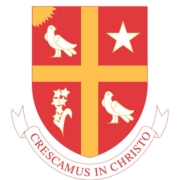 The University of St. Thomas in Houston, Tex., is hosting a Summer Writers Institute from June 12-14 for those who are 18 years of age or older. During this time, participants will meet at UST and hear from distinguished writers of poetry and fiction, and engage in seminars on art and beauty, Catholicism and literature, and the craft of writing.
The University of St. Thomas in Houston, Tex., is hosting a Summer Writers Institute from June 12-14 for those who are 18 years of age or older. During this time, participants will meet at UST and hear from distinguished writers of poetry and fiction, and engage in seminars on art and beauty, Catholicism and literature, and the craft of writing.
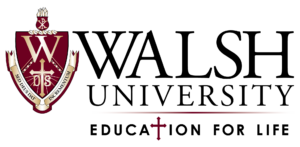 Walsh University in North Canton, Ohio, is hosting a summer program for rising seniors in high school for the first time. The Ex Nihilo summer program is designed to encourage teens to better live out their Catholic faith in the modern world. The program will expose students to the liturgical, intellectual, and cultural life of the Catholic church, as well as allow students to experience the joy of an authentic Catholic community. Daily activities will consist of theology seminars, pilgrimages to local shrines, and experiencing all that Walsh’s campus has to offer. The dates of the program haven’t been set yet, but students can email campusministry@walsh.edu for more information.
Walsh University in North Canton, Ohio, is hosting a summer program for rising seniors in high school for the first time. The Ex Nihilo summer program is designed to encourage teens to better live out their Catholic faith in the modern world. The program will expose students to the liturgical, intellectual, and cultural life of the Catholic church, as well as allow students to experience the joy of an authentic Catholic community. Daily activities will consist of theology seminars, pilgrimages to local shrines, and experiencing all that Walsh’s campus has to offer. The dates of the program haven’t been set yet, but students can email campusministry@walsh.edu for more information.
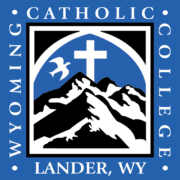 Wyoming Catholic College’s PEAK program in Lander, Wyo., offers a unique experience for rising juniors and seniors with adventurous spirits and a love for the outdoors. With the choice of two different sessions, from June 1-15 or June 16-30, students are given the opportunity to study the Great Books under the instruction of WCC faculty and to immerse themselves in the sacraments. Students are also engaged in a variety of outdoor activities, tailored to the experience and fitness of each participant, including rock climbing and a 4-day backpacking excursion. Students who register by March 1st will receive an early bird discount, and students are encouraged to ask a WCC admissions counselor about travel credit.
Wyoming Catholic College’s PEAK program in Lander, Wyo., offers a unique experience for rising juniors and seniors with adventurous spirits and a love for the outdoors. With the choice of two different sessions, from June 1-15 or June 16-30, students are given the opportunity to study the Great Books under the instruction of WCC faculty and to immerse themselves in the sacraments. Students are also engaged in a variety of outdoor activities, tailored to the experience and fitness of each participant, including rock climbing and a 4-day backpacking excursion. Students who register by March 1st will receive an early bird discount, and students are encouraged to ask a WCC admissions counselor about travel credit.
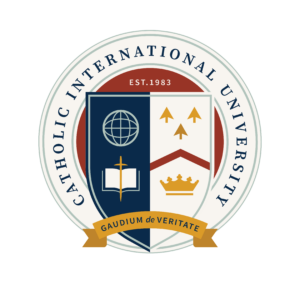
Finally, for students looking for a taste of faithful Catholic education from home, many Newman Guide colleges offer online courses, including Catholic International University and Holy Apostles College and Seminary. Catholic International University offers an Early College Program that allows high school students to take faithfully Catholic 100 and 200 level 3-credit hour courses. Most courses run for eight weeks and include courses like Latin 101, Foundations of Catholicism, and Intro to Catholic Health Care Ethics which is taught by Dr. Joe Zalot of the National Catholic Bioethics Center.
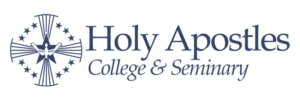
Holy Apostles College and Seminary offers a TakeCredit! program for high school students to take faithfully Catholic 100 and 200 level 3-credit hour courses. Students can earn up to 36 credits before graduating high school through Holy Apostles. Courses include Latin I, Catechism of the Catholic Church, and the History of Sacred Art. Online programs recommended in The Newman Guide, including Catholic International University and Holy Apostles College and Seminary, allow students to experience the best of the Catholic intellectual tradition from home.
Teaching the Truth About IVF
/in Blog/by Joseph Meaney, PhD, KMThe practice of in vitro fertilization (IVF) is so anti-life it astonishes people who believe it is a positive and compassionate scientific breakthrough enabling infertile couples and others to have children. Yet even as IVF grows in popularity, including support from the Trump administration, most secular schools and universities refuse to teach the truth about it. Catholic educators, then, must be public witnesses to the evils of IVF, enlightening their students about its dangers while standing firm and refusing to cooperate with IVF coverage in student and employee health plans.
How would any objective person evaluate a medical procedure that killed or left in suspended animation over 90 percent of its patients? IVF generally results in the live birth of only approximately 10 percent of the embryos conceived using this technique. “The IVF industry treats human beings like products and freezes or kills millions of children who are not selected for transfer to a womb or do not survive,” says the U.S. Conference of Catholic Bishops.
The Catechism of the Catholic Church in paragraphs 2376-2378 makes it abundantly clear that IVF and similar artificial reproductive technologies are gravely immoral and “dissociate the sexual act from the procreative act.” The Church affirms that children have the right to be respected as a person from the first moment of conception/fertilization and not to be treated like an object.
A pro-life philosophy is one that affirms all human beings must have their right to life respected from the first moment of their lives. It is nonsensical to call IVF “pro-life,” as a few groups do, because it helps some couples bear children. Yes, assisting people to have babies is pro-life, but not when the price is the deaths of multiple children for every one that is born alive. Would one call a medical intervention that prevented the deaths of some sick patients “pro-life,” if it killed several people for each person that it saved?
The procedure euphemistically known as “pregnancy reduction” is obviously anti-life. Since IVF-conceived embryos frequently do not implant and develop, it has been common for technicians to put three or more embryos in the woman. (Thankfully, in recent years the trend has been towards the transfer of fewer embryos.) If, however, multiple embryos survive and go forward, IVF doctors often counsel their clients to abort all but one of the babies, in order not to have more than the one desired child and to reduce the increased health risks attendant on twin, triplet, etc. pregnancies. Eugenics also comes into play, since the doctor uses an ultrasound to guide the fatal needle into the hearts of the fetuses deemed the least healthy. One might think that a couple seeking to overcome infertility would be happy to welcome twins, but the most common “pregnancy reduction” abortions are the killing of one preborn child to prevent the birth of twins.
Some argue they could do IVF without conceiving large numbers of embryos, or they could transfer all of their children to the womb and avoid intentionally killing any of them. Would this be “pro-life” IVF? It certainly reflects a pro-life attitude, but it is not pro-life to expose one’s children to tremendous risk of death through IVF procedures. At each stage in the process, these tiny human beings are at risk. Their conception and early life in the artificial atmosphere of a lab results in some deaths. Freezing and thawing them for transfer kills many. The embryos frequently fail to implant in the womb or are fatally miscarried at higher rates than normal pregnancies. Children conceived through IVF are at greater risk of fatal and non-fatal genetic anomalies and health problems. Thus, beyond the ethical violations inherent in causing conception to happen outside of the mother’s body, IVF is also incompatible with the pro-life parental concern that refuses to intentionally place one’s future children in harm’s way.
The instruction from the Congregation for the Doctrine of the Faith, Dignitas Personae, sums up the anti-life nature of IVF: “The blithe acceptance of the enormous number of abortions involved in the process of in vitro fertilization vividly illustrates how the replacement of the conjugal act by a technical procedure—in addition to being in contradiction with the respect that is due to procreation as something that cannot be reduced to mere reproduction—leads to a weakening of the respect owed to every human being. Recognition of such respect is, on the other hand, promoted by the intimacy of husband and wife nourished by married love.”
My wife and I suffered from infertility until the conception of our daughter Therese, over eight years into our marriage. We explored and pursued many treatments for infertility. IVF, however, never tempted us because of our Catholic faith and our deep pro-life convictions. Couples faced with infertility show the sacrificial love typical of good parents when they refuse to agree to the “quick fix” of IVF that practically guarantees some of their offspring will die in pursuit of a slim chance of a “babe in arms.” Children and parents deserve better than IVF. Thankfully, ethically sound restorative reproductive medicine is available and helps couples fulfill their dream of parenthood, without incurring the guilt of sacrificing lives to attain the blessing of a family.
Joseph Meaney, PhD, KM
Past President and Senior Fellow of The National Catholic Bioethics Center
jmeaney@ncbcenter.org
What Is Pro-Life Education?
/in Blog/by Patrick ReillyAny student attending a Newman Guide institution can immediately discern a departure from the “Culture of Death” that pervades secular society and most college campuses.
In my experience, students and educators in faithful Catholic education are more joyful, generous, pro-family, and committed to pro-life values, behaviors, and public policies.
Catholic educators hoping to replicate such pro-life commitment may wonder where to begin. The influence and witness of a pro-life student club is laudable. A school leader’s pronouncements can help form the ethos of an institution. But these alone are not sufficient.
A pervasively pro-life education must be more.
Below are four marks of pro-life education. Not surprisingly, they align with The Cardinal Newman Society’s Principles of Catholic Identity in Education, which synthesize the main themes across Vatican teachings on Catholic education. If education is pro-life, it imparts respect for human life and an understanding of human dignity. Its graduates are motivated to protect and serve human life at all stages.
Understanding the human person—What is man? For what purpose was man created?—is necessary for an integral Catholic education. It’s also necessary for a pro-life education.
In today’s culture, we greatly need graduates of Catholic education who can persuasively explain the dignity of human life and defend God’s divine authority to govern conception, birth, and death. Catholic anthropology provides students the only solid foundation for their pro-life views, in contrast to flimsy political and rights-based arguments rooted in Enlightenment thinking.
For Catholics, human dignity is found in our unique calling to be united with God. It is for this that we were made in His image with the gift of reason, by which we understand deeply, love deeply, and devote ourselves freely to Him. We know ourselves best by contemplating God, man’s beginning and final end:
In today’s pluralistic world, the Catholic educator must consciously inspire his or her activity with the Christian concept of the person, in communion with the Magisterium of the Church. It is a concept that includes a defense of human rights, but also attributes to the human person the dignity of a child of God; it attributes the fullest liberty, freed from sin itself by Christ, the most exalted destiny, which is the definitive and total possession of God Himself, through love. (Lay Catholics in Schools: Witnesses to Faith, 18)
A pro-life education does not simply assert a person’s right to happiness or a right to be free from violation, which pits the mother against her child. It teaches the justice and freedom of conforming to God’s will, which is our salvation in Jesus Christ. This is why a mother, even in a crisis pregnancy, has no right to end the life of her child—and why the life of every person, regardless of age or circumstance, is most precious to God.
Catholic anthropology also affirms that God made humans male and female, oriented toward union in marriage. The fruit of that marriage is family. Abortion, then, is a denial of the human love to which God calls every parent and spouse and a sin against marriage.
“Catholic education is an expression of the Church’s mission of salvation and an instrument of evangelization: to make disciples of Christ and to teach them to observe all that He has commanded.” Thus begins the Principles of Catholic Identity in Education.
Recognizing that every human life has priceless value and dignity, because it is intended for communion with God, a Newman Guide Recommended institution must not only tend to the souls of its students but also teach them to love every other person. Faithful Catholic education—pro-life education—teaches students to respect every person’s equal dignity while refusing to measure worth according to age, disability, race, or other accidental traits.
A faithfully Catholic, pro-life education also guides students to make salvation their priority, even over physical suffering or death. A pro-life education should include much prayer for the souls of those who have gravely sinned by participating in abortion, contraception, in vitro fertilization, or other signs against marriage and children. Although babies are the bodily victims of abortion, we should be most concerned by the mortal sin of abortion, putting thousands of souls at the risk of Hell.
A Catholic, pro-life education teaches the wages of sin and the opportunity for redemption in Confession. We rely on our graduates to lead those wounded by sin to His mercy, which is what society needs to overcome the Culture of Death.
A Catholic education is distinguished by its integration of the truths of revelation and the insights of our Catholic faith—including our understanding of the dignity of human life—within every course of study.
Pro-life themes can be addressed directly in catechesis and theology courses by reading Church documents on abortion, in literature with themes about human dignity, in history courses considering the politics of slavery, in civics courses concerning natural law and civil rights, and so on. Ethics courses across the curriculum teach respect for human dignity.
There are plenty of other ways to creatively instill pro-life values in students.
Pro-life essay and speaking competitions, guest lectures, research papers, field trips to pro-life organizations, etc. are great educational opportunities. A pro-life institution will generously support pro-life clubs, services, and fundraisers for mothers in crisis pregnancies, attending pro-life rallies and marches, and other student activities.
Catholic education should include substantial prayer for the lives of the unborn, the well-being of their mothers and fathers, the conversion of those who promote or engage in abortion, and God’s mercy upon those who have died in a state of mortal sin. Such prayer can be incorporated throughout the day, in Masses, and special prayer services.
Although Catholic educators need to be cautious about turning education toward a social or political agenda, Catholic education is tasked with “a critical, systematic transmission of culture in the light of faith and the bringing forth of the power of Christian virtue by the integration of culture with faith and of faith with living” (The Catholic School, 49).
All education transmits to students the culture in which they live. Catholic education, however, which is ordered to the higher culture of God’s Kingdom, maintains a critical perspective on human culture with an eye toward building the Kingdom. It is appropriate that faithful Catholic educators display disgust with abortion and other threats to innocent life.
Pope St. John Paul II writes, “If need be, a Catholic University must have the courage to speak uncomfortable truths which do not please public opinion, but which are necessary to safeguard the authentic good of society” (Ex corde Ecclesiae, 32).
Scholarly research and publication can contribute greatly to the pro-life effort. Catholic scholars are called to “a study of serious contemporary problems in areas such as the dignity of human life…” (Ex corde Ecclesiae, 32).
A Newman Guide education strives to form students to fulfill God’s calling in them, to know Him and His creation, and to serve Him in this life and the next. When they do this, they provide the very best of pro-life education.
Georgetown must end its race obsession
/in Blog Blog, Latest/by Bob Laird(As featured in The Washington Examiner)
There is a saying in the Catholic Church that “error has no rights.” Yet William Treanor, the dean of Georgetown University Law Center, is claiming constitutional protection for the school’s diversity, equity, and inclusion policies under the guise of religious freedom. This is as flawed as it is hypocritical.
In a letter dated March 6 responding to interim U.S. attorney for the District of Columbia Ed Martin’s investigation into the school’s DEI ideology, Treanor said, “Given the First Amendment’s protection of a university’s freedom to determine its own curriculum and how to deliver it, the constitutional violation behind this threat is clear, as is the attack on the University’s mission as a Jesuit and Catholic institution.”
In fact, the Supreme Court ruled in 1983 that Bob Jones University’s religious views did not protect its racist policies. Regardless, no Catholic doctrine requires Georgetown to foster racial division. Catholics believe that “redeemed by the sacrifice of Christ, all are called to participate in the same divine beatitude: All therefore enjoy an equal dignity.”
Many Catholics have seen how universities’ affirmative action policies and promotion of critical race theory have divided society, and they agree that race-blind admissions and merit-based policies in education better respect the God-given dignity of every person. DEI, on the other hand, often presupposes that educational and employment opportunities and even freedom of speech should not be equal but scaled by race.
Catholic schools and colleges today have a great opportunity to lead the way in witnessing to the Church’s call for “every type of discrimination … to be overcome and eradicated as contrary to God’s intent.” This is what the Cardinal Newman Society encourages from its recommended colleges, which stand apart from places such as Georgetown by refusing to yield their Catholic identity to ideology and political pressures.
As for Georgetown, its religious freedom claim is hypocritical given the university’s repeated disregard for Catholic teaching. The Church’s document on Catholic universities states that “a Catholic University, as Catholic, informs and carries out its research, teaching, and all other activities with Catholic ideals, principles and attitudes.”
Georgetown University, however, has repeatedly violated its Catholic mission with campus events and university policies challenging Catholic morality on abortion, gender ideology, gender transition, sexuality, and more. The law school’s courses include “Reproductive Health and International Human Rights Law,” a practicum in which students work in organizations “to advocate for the advancement of reproductive health rights,” including pro-abortion lobbies such as the Center for Reproductive Rights and the Women’s Equality Center.
Even Georgetown’s campus ministry is not Catholic — it includes just two Catholic priests on a 30-person “interreligious” staff, with ministers promoting Episcopal, Hindu, Jewish, Muslim, Orthodox, and Protestant spirituality.
As for DEI, the Trump administration is right to investigate Georgetown and 50 other institutions, including another compromised Catholic school, the University of Notre Dame, for civil rights violations. Among concerns at Georgetown is the mandatory undergraduate course “Race, Power and Justice at Georgetown,” which focuses on racial issues and the school’s legacy of owning slaves. In 2022, the university led a coalition urging the Supreme Court to uphold race-based admissions, but the court struck them down.
Georgetown Law is a particular concern. Three years ago, Treanor placed conservative scholar Ilya Shapiro on administrative leave before he could start his new role as the executive director of the Georgetown Center for the Constitution. His crime? Criticizing President Joe Biden’s racist plan to consider only black women for a Supreme Court vacancy. Treanor provided students a “safe space” to cry and publicly accused Shapiro of making statements “antithetical to the work that we do at Georgetown Law to build inclusion, belonging, and respect for diversity.”
The prior year, Treanor fired a professor for lamenting the low performance of many black students in her class. Treanor declared, “There is no place for bias in our grading process or anywhere in our community” — as if the professor had admitted to racial bias in grading students, which she did not.
Georgetown Law describes its Journal of Modern Critical Race Perspectives as “one of the few law journals in the country dedicated to legal scholarship on race and identity” and “grounded in critical race theory.” The school also celebrates the 2008 article by Georgetown professor Charles Lawrence, “The Id, The Ego, and Equal Protection: Reckoning With Unconscious Racism,” which it touts as “a foundational document of Critical Race Theory.”
Several of Georgetown Law’s courses embrace critical race theory and other divisive identity issues. This includes the first-year “Foundations of American Legal Thought,” which includes “critical legal studies, feminist legal theory, critical race theory, conservative legal theory, and LGBTQ+ legal theory.” Another course, “Race, Inequality, and Justice,” includes texts on critical race theory, as does the first-year course “Critical Race Theory” and the more advanced “The Critical Race Theory Tradition: Canonical Texts and New Directions.”
In its 2023 ruling in Students for Fair Admissions Inc. v. President and Fellows of Harvard College, the Supreme Court rightly declared that “eliminating racial discrimination means eliminating all of it.” The ruling revealed the crack in the DEI logic, finding that discrimination in any form is unlawful and that all students should have an equal playing field when competing for acceptance at a college or university.
We now have a government that is providing opportunities to rid institutions of old DEI habits that have been festering for years. Those institutions that continue to advance woke ideology and race-based policies deserve to be held in violation of civil rights laws and pressured to adopt a more Christian respect for human dignity.
Bob Laird is senior counselor to the president at The Cardinal Newman Society, which promotes and defends faithful Catholic education.
Your support promotes and defends faithful Catholic education!
The Cardinal Newman Society relies on the generosity of our supporters to promote and defend faithful Catholic education — which is the key to seeing the Church restored and our culture renewed. Will you partner with us today to ensure this critical mission continues and grows even as the culture becomes more hostile to Catholic values?
Newman Guide College Graduate Helps Make Prayer Accessible
/in Blog Newman Guide Articles, Profiles in FCE/by Kelly SalomonAnnie Foster
A graduate of a faithful Catholic college believes daily prayer is critical—and she’s sharing a new tool to help young people develop a prayer routine.
“Forming a strong daily prayer routine is paramount to building the spiritual armor necessary to face daily temptation as well as the destructive forces college students will be met with post-graduation,” urges Annie Foster, a graduate Franciscan University of Steubenville, which is recommended in The Newman Guide for its strong Catholic identity.
Now employed by the Catholic app named “Hallow” that hosts thousands of audio-guided prayers and meditations, Annie believes the tool can be a great resource for young people to grow in their relationship with Jesus Christ. The app has become the top Catholic app in the app store, with hundreds of thousands of five-star reviews.
“I believe Hallow’s success and why it is a helpful resource for young adults, lies first and foremost in the fact that prayer is where we come to know the person of Jesus Christ and where we invite Him into a personal relationship. The Catholic apologetics space is overflowing with catechetical resources to help us to know and defend our faith. Hallow’s primary purpose however is to serve as an instrument that our Lord can use to speak to our hearts and where we can speak to His.”
Hallow allows users to set-up alerts for prayer throughout the day, and then set time aside for audio prayers like the Angelus and Rosary. It “meets students where they are” both physically (on their phones) and spiritually (on their faith journeys), explains Annie. Schools and colleges like Franciscan University are partnering with Hallow to make the app available to students.
The app is also in high demand to respond to the mental health crisis that many young people are facing today.
“In recent years, young adults have been experiencing and openly sharing more and more the mental health issues they’ve been facing. The remedies of the world are often not only contrary to our faith but lead the youth into even greater confusion and desolation,” explained Annie. “Hallow responded to this reality by working with Catholic mental health professionals such as Dr. Bob Schuchts and religious such as Sr. Miriam James to create meditations to address the healing of wounds, addictions as well as various other topics.”
In her life and work, Annie draws the on formation she received at Franciscan University “on a daily basis.”
“Franciscan is where I fell in love with the study of philosophy, particularly Christian personalism and the thought of Dietrich von Hildebrand and his wife Alice. I worked as a student fellow for the Hildebrand Project, a non-profit dedicated to the dissemination of Hildebrands thought and witness,” explained Annie. “Christian personalism tints the lense with which I view my faith and my work because it is a philosophy rooted in an appreciation of the dignity of the human person and therefore a philosophy that can be lived.”
She was also an active member of Franciscan’s lacrosse team. “Coach Maura Carapellotti transformed simple exercises into spiritual exercises. Coach emboldened us to play our sport with total freedom and fearlessness because she convinced us that our identities were not based on the scoreboard but in our relationship with our Lord. We truly played for an audience of One [Jesus Christ].”
The women’s lacrosse team at Franciscan University of Steubenville.
“Attending a faithful Catholic college akin to Franciscan not only makes authentic Catholic teaching and the sacraments accessible, it makes accessible a community of peers who will support you in prayer and friendship for the rest of your life. That is no small thing. We often affectionately refer to Steubenville as a ‘bubble’ because it truly is a safeguarded haven for practicing Catholics.”
But “even within the ‘bubble’ the enemy never sleeps,” and the temptations are great after college, explained Annie. That’s why building a prayer routine is so critical—and why Annie is helping young people do just that.
This article was first published in 2022 and updated in 2025.
Ep. 38: Faith, Scholarship, & Community at Benedictine College with Steve Minnis
/in Podcast Blog/by Christopher ByrnePodcast: Play in new window | Download
Join us as Steve Minnis, president of Benedictine College, shares his remarkable journey of over two decades at the helm, driving unprecedented growth and fostering a community deeply rooted in faith and scholarship. Under his leadership, Benedictine College has not only doubled its student body but also enhanced its campus with modern facilities, all while strengthening its Catholic identity. From initiating a unique consecration to the Blessed Virgin Mary to embedding faith deeply into the academic and communal fabric of the college, Minnis’ vision is a testament to the transformative power of integrating community, faith, and scholarship in higher education.
Click here to watch on YouTube
Student Reverts to Catholicism at Newman Guide College
/in Blog Newman Guide Articles, Profiles in FCE/by Cardinal Newman Society StaffThe Driessen Family
Sarah Driessen says that a faithful Catholic college recommended in The Newman Guide was “extremely pivotal” in shaping the direction of her life.
“Before attending Campion College, I had rejected my Catholic faith and was practicing as a Protestant,” explained Driessen, who graduated from Campion College in Toongabbie East, New South Wales, in 2019. “By the end of my first year at Campion, I had come back to the Catholic Church.”
The Cardinal Newman Society recently caught up with Driessen to learn about the education and formation she received at Campion College.
CNS: Can you tell us about your experience at Campion College?
Sarah Driessen: My time at Campion College was extremely pivotal to the trajectory of my life. After receiving a leadership scholarship from Campion College, I tentatively withdrew my acceptance to the University of Queensland and enrolled at Campion on the last possible enrolment day. Since then, I have never looked back. The one word I can use to describe my experience at Campion College is: formative. Our studies journeyed chronologically through the history of Western civilisation, with the assistance of the great classic books. I studied the core subjects of philosophy, theology, literature, and history. By my third year, I had the option to choose a major, and I chose history. It was beautiful to see how all the subjects complimented each other and came together to form a holistic understanding of the world today. Moreover, the culture on campus was like no other—it was one big family—a diverse group of people forged in friendship, and the pursuit of goodness, beauty and truth.
CNS: How did Campion College help you grow in your faith, and form you as a person?
Sarah Driessen: Before attending Campion College, I had rejected my Catholic faith and was practicing as a Protestant. By the end of my first year at Campion, I had come back to the Catholic Church. I came to revert through studying the early Church Fathers and the history of Christianity. As well as truly coming to know Christ through the Eucharist, and witnessing my friends live out their Catholic faith.
By studying western civilisation alongside like-minded people, I was able to grow in faith, friendships, virtue, critical thinking, knowledge, and wisdom. After encountering the liberal arts as taught at Campion, I simply could not view things in the way I used to. I felt as though I had clarity in my understanding of the world and my purpose.
I always treasure my three years at Campion College. All the friendships I gained during my time have remained in my life and are some of the closest I have today. I am certain that without Campion, I would not be the person I am today.
CNS: How did Campion College prepare you for the work you do today?
Sarah Driessen: I am a semi-stay-at-home mom. I run a small business and do work every so often… I work as a heritage consultant, and I only do one project at a time… I am currently finishing a conservation management plan for an old Catholic Church in Orange NSW. I write the history on the building, help with future designs that are appropriate to its old architectural style, and help with future management.
Campion prepared me to be a stay-at-home mom through the formation it gave me as a Catholic. My days are filled with trials. I am constantly trying to grow in virtues, especially patience, offer up sufferings and lead my children towards Christ. Campion taught me to have a holistic and eschatological mind, to focus on what truly matters: my daily duties and focusing on the eternal (God’s plan for me).
Campion taught me all these things but especially a yearning and love for knowledge, which I try to teach my children. Campion also revealed to me how much I was lacking in my education before attending, so I am trying to guide my kids in the right direction in terms of faith formation and classical learning.
College-Bound? Try These Catholic Summer Programs
/in Blog Latest, Newman Guide Articles/by Cardinal Newman Society StaffA faithful Catholic education can prepare students not only for a career, but also for life. Whether or not you plan to attend a Catholic college, a summer program at one of the faithful colleges recommended in The Newman Guide can be enriching and will give you a taste of the benefits of a Catholic education.
Summer programs are a great opportunity for high school students to strengthen their academic and extracurricular skills, grow in their spiritual lives, get a head-start on college visits, learn from distinguished professors, make lifelong friends and experience what faithful Catholic education is all about. Here are some options:
The Catholic University of America in Washington, D.C., offers a wide variety of fun and educational summer programs for high school students. Whether students are interested in engineering, writing, nursing, drama, architecture, or 3D Animation, there’s something for everyone! In Experiences in Architecture, students will explore the academic and professional sides of architecture. Drama lovers will be drawn to the High School Drama Institute, studying voice, movement, and acting with industry pros. Budding engineers can dive into Engineering New Frontiers and the Computational Biosciences Institute, where students will delve into biomedical, mechanical, electrical, civil, and computer science engineering. Non-residential programs at Catholic University of America include the Nursing Intensive, 3D Gaming Animation, and two new camps: Script & Story Workshop and Young Writer’s Retreat. These programs are designed to provide an enriching educational experience in the nation’s capital.
Finally, for students looking for a taste of faithful Catholic education from home, many Newman Guide colleges offer online courses, including Catholic International University and Holy Apostles College and Seminary. Catholic International University offers an Early College Program that allows high school students to take faithfully Catholic 100 and 200 level 3-credit hour courses. Most courses run for eight weeks and include courses like Latin 101, Foundations of Catholicism, and Intro to Catholic Health Care Ethics which is taught by Dr. Joe Zalot of the National Catholic Bioethics Center.
Holy Apostles College and Seminary offers a TakeCredit! program for high school students to take faithfully Catholic 100 and 200 level 3-credit hour courses. Students can earn up to 36 credits before graduating high school through Holy Apostles. Courses include Latin I, Catechism of the Catholic Church, and the History of Sacred Art. Online programs recommended in The Newman Guide, including Catholic International University and Holy Apostles College and Seminary, allow students to experience the best of the Catholic intellectual tradition from home.
Ep. 37: A Parent’s Crusade Against Woke Ideology in Catholic Education (Pt.2)
/in Podcast Blog/by Christopher ByrnePodcast: Play in new window | Download
Continue the gripping narrative with Tony Scarpo as he delves deeper into the aftermath of confronting woke ideologies at his daughters’ Catholic school. After initially stepping back into a leadership role with renewed promises from the school, Tony and his wife Barbara faced a resurgence of the very issues they fought against. This episode explores the stark revelations and tough decisions that led to a legal battle against the school, highlighting the significant personal and communal impact. Their journey underlines the profound necessity for parents to be vigilant and proactive in safeguarding Catholic education.
Click here to watch on YouTube
Ep. 36: A Parent’s Crusade Against Woke Ideology in Catholic Education (Pt.1)
/in Podcast Blog/by Christopher ByrnePodcast: Play in new window | Download
Tune in to hear Tony Scarpo’s compelling journey as he and his wife made deliberate choices to immerse their daughters in what they believed was a faithful and nurturing Catholic school. After relocating their home closer to the prestigious school, spearheading fundraising efforts, and contributing $1.35 million to its development, Tony uncovers a distressing shift towards woke ideologies within the school. His story unfolds into a dramatic confrontation with the school’s leadership, culminating with his family suing the school for fraud. This episode is a poignant reminder of the vigilance needed to preserve the essence of faithful Catholic education in the face of modern challenges.
Click here to watch on YouTube
Going On Offense
/in Blog/by Kevin Roberts, Ph.D.We can use the next four years to advance Catholic education and secure it for decades.
Our Lord promises that the “gates of hell shall not prevail” against the Church. With these words, Jesus not only reassures us that He will never abandon his Church to evil, but He also extolls us to go on offense for the Kingdom of God. Saint Paul later calls on Christians to do the same thing. “Do not be conquered by evil,” he writes, “but conquer evil with good.”
In the wake of Donald Trump’s recent victory, the Church in America needs to be reminded of these words, and it would do well to heed them. This is especially true in the realm of Catholic education. For too long Catholic education in the United States has been stuck in a defensive posture, timidly defending its most basic rights while slowly secularizing and giving ground to radical progressives. This diffident approach has produced poor results and only invited further aggressiveness from the enemies of the Church.
In the past four years, Democrats in Washington have pushed far beyond the Obama-era policies of demanding contraception coverage in Catholic healthcare plans and mandating that Catholic schools open their bathrooms and locker rooms to students of the opposite sex. Most notably, the Equality Act that progressives attempted to pass would have effectively ended Catholic education as we know it. By making it illegal to discriminate because of “sexual orientation” or “gender identity,” the Equality Act would have allowed gay or transgender employees and students to sue Catholic institutions simply for standing by Catholic teaching, thus forcing many schools to abandon their faith or close their doors.
The fight for the religious freedom to provide truly Catholic education, hire faithful teachers and staff, and reject immoral practices like abortion and bodily mutilation is also ongoing in the states and the private sector. In Governor Gretchen Whitmer’s Michigan, for example — where the Equality Act is the law of the land — Catholic schools like St. Joesph’s outside Lansing and Sacred Heart of Jesus outside Grand Rapids are fighting for their lives in the courts.
Meanwhile, progressive activists are convincing more and more big corporations and athletic associations to put pressure on Catholic schools that refuse to comply with the latest pro-abortion, LGBT, or DEI policies. In 2020, for example, the Human Rights Campaign lobbied hard for Biden’s Department of Education to “tighten” its accreditation policies and encourage agencies to refuse accreditation to any Catholic schools that didn’t enforce “nondiscrimination policies” or meet “scientific curriculum requirements.”
Though the political and legal threats are great, they are not insurmountable. Indeed, despite them, there are good reasons to be hopeful. Since 2022, for example, ten states have passed universal education choice initiatives, which allow parents to use their children’s taxpayer-funded education dollars for the school of their choice, or even help cover certain homeschool expenses. These laws, in turn, have been a boon to Catholic schools, especially the burgeoning Catholic classical school movement. Since 2019, more than 264 new classical schools have been founded, and existing ones saw enrollments surge. And the momentum for classical education is only growing. According to some estimates, the classical school enrollment of 677,500 students this year is expected to more than double to 1.4 million by 2035.
Under these circumstances, Donald Trump’s recent victory offers not only a respite from the federal government’s total onslaught on Catholic education, but also a unique opportunity to advance our cause and secure the future of Catholic education for generations to come.
What does this look like in practice? For starters, it means dismantling the Department of Education, as President Trump has promised. Next, the incoming administration should seek to expand school choice with as little regulation as possible, get rid of common core standards as well as other career- and college-focused standards, and restore the original meaning of Title IX. Finally, the president-elect could take action to deregulate teacher preparation and de-link school accreditation and student aid from Title IX policies. The Cardinal Newman Society has helpfully provided details on how President Trump can make many of these changes and offered several more specific actions that the incoming administration can take to protect Catholic education.
But it’s not just the White House that needs to seize this opportunity. Catholic educators across the country should use the next four years to aggressively expand their operations, deepen their commitment to Catholic teaching, and fortify themselves against future attacks. Indeed, we should use every moral means at our disposal — from lobbying to lawfare — to push back against the radical Left.
In this fight, The Heritage Foundation stands ready to support you. As a proud partner of The Cardinal Newman Society, we provide essential guidance to Catholic schools on how to protect their religious freedom and confront contemporary challenges without shying away from their beliefs. We also have extensive resources for Catholic teachers and administrators, from a curriculum library to school models. And for all parents and students, we offer data-driven college recommendations so you can choose a school with confidence.
In conclusion, we must remember that our religious freedom doesn’t come free. God invites us to join Him in His suffering, but also in His triumphant victory. When we refuse to take an active role in securing our freedom, we are effectively rejecting that invitation.
The next four years are critical for securing the future of Catholic education in the United States for the next 40 years. Despite facing more serious attacks than ever before, with Donald Trump’s victory we have a unique opportunity to go on offense. Now is the time for action. In the words of Saint Elizabeth Ann Seton: “When so rich a harvest is before us, why do we not gather it? All is in our hands if we will but use it.”
Kevin Roberts, Ph.D., is president of The Heritage Foundation, which formulates and promotes public policies based on traditional principles. He founded and led John Paul the Great Academy, a co-ed, K-12 Catholic liberal arts school in Lafayette, La., for seven years, and he was president of Wyoming Catholic College, a Newman Guide Recommended institution, from 2013-2016.